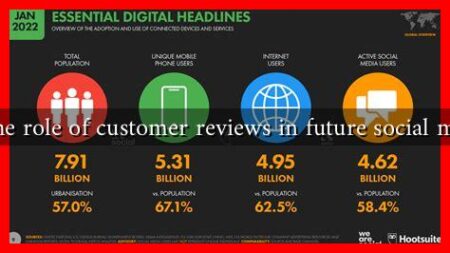-
Table of Contents
- How to Use Cloud for Enhanced Customer Experience
- The Role of Cloud Technology in Customer Experience
- Personalization Through Cloud Analytics
- Improving Customer Support with Cloud Solutions
- Case Study: Starbucks and Cloud Technology
- Statistics Supporting Cloud Adoption for Customer Experience
- Conclusion
How to Use Cloud for Enhanced Customer Experience
In today’s digital landscape, businesses are increasingly turning to cloud technology to enhance customer experience. The cloud offers a plethora of tools and services that can help organizations streamline operations, personalize interactions, and ultimately improve customer satisfaction. This article explores how businesses can leverage cloud solutions to create a more engaging and efficient customer experience.
The Role of Cloud Technology in Customer Experience
Cloud technology serves as a backbone for many customer experience initiatives. By providing scalable resources and advanced analytics, the cloud enables businesses to respond to customer needs more effectively. Here are some key ways cloud technology enhances customer experience:
- Scalability: Cloud solutions can easily scale to accommodate fluctuating customer demands, ensuring that businesses can handle peak times without compromising service quality.
- Data Accessibility: Cloud platforms allow for real-time access to customer data, enabling businesses to make informed decisions quickly.
- Collaboration: Cloud-based tools facilitate better collaboration among teams, leading to more cohesive customer service efforts.
Personalization Through Cloud Analytics
One of the most significant advantages of using cloud technology is the ability to harness data analytics for personalization.
. By analyzing customer behavior and preferences, businesses can tailor their offerings to meet individual needs. Here’s how:
- Customer Segmentation: Cloud analytics tools can segment customers based on various criteria, allowing businesses to target specific groups with personalized marketing campaigns.
- Predictive Analytics: By utilizing machine learning algorithms, businesses can predict future customer behavior and preferences, enabling proactive engagement.
- Real-Time Feedback: Cloud solutions can gather and analyze customer feedback in real-time, allowing businesses to make immediate adjustments to their services.
For example, Netflix uses cloud-based analytics to track viewer preferences and behaviors, allowing them to recommend shows and movies tailored to individual users. This level of personalization has been a key factor in their customer retention strategy.
Improving Customer Support with Cloud Solutions
Cloud technology can significantly enhance customer support services. Here are some ways businesses can utilize the cloud to improve their support systems:
- Omni-Channel Support: Cloud-based customer support platforms allow businesses to provide support across multiple channels (e.g., chat, email, social media) seamlessly.
- AI-Powered Chatbots: Implementing AI chatbots on cloud platforms can provide instant responses to customer inquiries, improving response times and customer satisfaction.
- Knowledge Management: Cloud solutions can centralize knowledge bases, making it easier for support teams to access information and resolve customer issues quickly.
For instance, Zendesk, a cloud-based customer service platform, enables businesses to manage customer interactions across various channels, ensuring a consistent and efficient support experience.
Case Study: Starbucks and Cloud Technology
Starbucks is a prime example of a company that has successfully leveraged cloud technology to enhance customer experience. By utilizing cloud-based data analytics, Starbucks can analyze customer purchasing patterns and preferences. This information allows them to personalize marketing efforts and improve product offerings. Additionally, their mobile app, powered by cloud technology, enables customers to order ahead, pay, and earn rewards, creating a seamless experience that keeps customers coming back.
Statistics Supporting Cloud Adoption for Customer Experience
The impact of cloud technology on customer experience is backed by compelling statistics:
- According to a report by Gartner, 85% of customer interactions will be managed without a human by 2025, largely due to cloud-based AI solutions.
- A study by Salesforce found that 70% of customers say connected processes are very important to winning their business.
- Research from McKinsey indicates that companies that excel in customer experience can achieve revenue growth of 5-10% above their market average.
Conclusion
In conclusion, leveraging cloud technology is essential for businesses aiming to enhance customer experience. By utilizing cloud analytics for personalization, improving customer support through omni-channel solutions, and learning from successful case studies like Starbucks, organizations can create a more engaging and efficient customer journey. As the digital landscape continues to evolve, embracing cloud solutions will be crucial for businesses looking to stay competitive and meet the ever-changing expectations of their customers.
For more insights on cloud technology and customer experience, you can visit Forbes.





